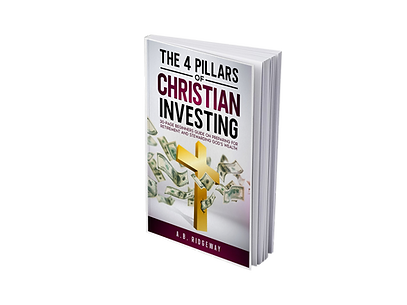
You don’t need a lot of money to invest, but with all of these investment apps that give you a portfolio with one click. This low barrier to entry may increase your chances of losing all of your money in the stock market.
I know what you are thinking…
“I’ll just take my $10 and buy this stock, it is cheap and it looks like I can get 2 shares. I mean why not? Every one is telling me I should invest.”
With the introduction of social media memes and investment apps, there is a new wave of investors and everyone is excited to learn about finances.
They even have kids investing and buying their first stock.
This is amazing…well sort of…
Investment apps typically can provide low minimums and trades that are not commissioned, so investing that $10 couldn’t be easier and cheaper than hiring a stock broker to do it for you.
But I’m here to tell you why you should rethink your investments and how to avoid being ripped off!
Why you shouldn’t buy penny stocks…at least if you are a new to investing…
A penny stock is a stock that trades for less than $5. The companies behind them are either unproven or in financial trouble. And if you can’t read a financial statement, you won’t know which is which.
Some established and credible investment firms will require seasoned investors to meet a criteria and sign a disclosure before allowing them to invest in Penny Stocks.
Some criteria include but not limited to:
· 5 years of investment experience
· A net worth of $1MM or more
· Signed acknowledgement that you understand the risk of Penny Stocks
· And rules stating that they cannot make up more than 20% of portfolio.
Check with your local firm for your specific criteria, if applicable.
Why are people scared of Penny Stocks?
As a beginner, you are just becoming introduced to the world of finance. There is a reason why the Penny Stocks are so cheap.
Here are a few reason if you are not…why you should be
Liquidity– these stocks are not traded often, so if you want to sell it and get your profit, it may be hard to find a buyer. That means you may be stuck with a stock that is declining and there is nothing you can do.
Financial Issues– a company may be struggling to pay their investors, or their products may have been impacted by market trends. There are a multitude of reasons why a stock may be struggling. But one thing for sure, there stock price is not low for no reason. Google is nearly $3000/share as of today…let that sink in.
Increased Risk– yes, you may invest and double your money when a $1 stock goes up to $2. But with the potential for such big gains, you also increase the risk of big loses and there is no waiting it out when it comes to bankruptcy.
What can you do if you can’t afford the more expensive shares?
You can always find well established companies and buy fractional shares.
A fractional share is less than one full share of equity is called a fractional share. Such shares may be the result of stock splits, dividend reinvestment plans (DRIPs), or similar corporate actions. (Investopedia.com 2-8-2022)
Here is a quick example:
Google share price is around $3,000. But you don’t have that amount of money.
That’s okay.
You can invest that $10 and get 1/300th of a share.
It doesn’t sound sexy that you own 1/300th of a share but compared to penny stocks, fractional shares will be the safer option for new investors and even seasoned investors who don’t want to lose a lot of money quickly.
Also understand that fractional shares are hard to sell as well. If you are going to take this approach, make sure you are aiming to obtain a whole share. Creating a portfolio with 30 fractional shares may cause more harm than good. Find a stock and work towards obtaining a whole share.
Are you Saying Don’t Use An Investment App?
No. I am saying be careful going down a list and choosing cheap stocks. There are other options you can take advantage of than using an app.
Is investing just $10 worth it?
Of course! Here are a few examples of what just $10/week can do to an investment account. Keep in mind these numbers are hypotheticals and are not guaranteed. The goal is to show the relationship between the different methods of saving that $10 and what difference it can make in the long term.
How you will have after 30 years if you invest in a
Savings account
$10 x 4 weeks x 12 months x 30 years = $14,000
401(k) with .000001% growth (basically no growth)
$20 ($10 + $10 employer match) x 4 weeks x 12 months x 30 years = $28,800.43
401(k) with a conservative 5% growth rate
$20 x 4 weeks x 12 months x 30 years (with a 5% annualized growth rate) =$66,858.11
So saving $10 matters, and where you invest that $10 matters even more! Consult with a financial advisor to go over your options.
Obviously, you will have to save more than $10 to prepare for your future, but I wanted to show you the impact that a small savings can make. Suppose you are already saving, putting an extra $10 to the save can give you an extra $66,000.00. That is a nice piece of change.
So if you are going to invest that small amount. Here are a few tips to help you make that decision:
1. Add it to your retirement
We just showed you the power of the match. You can potentially earn over double what you would have just by contributing to your retirement. That’s free money!
2. When you get a raise, your investments should get a raise
Your investing strategy should adjust with your income. If you get a 5% raise at the end of the year, make sure you are investing. Because just because your income goes up, doesn’t mean your expenses have to go up proportionately.
3. Watch the Fees
If you are charged a late fee or maintenance fee on an app or late on your credit card, it can hurt your savings. If you are saving $10/week, that one late charge can set you back 3 weeks. So comb through your statements and add notifications on your phone to let you know when major bills are due.
4. Invest on a schedule
Pick a schedule you can keep. It can be weekly, but I suggest starting out with once a month until you develop the habit. The same amount, at the same time intervals. I don’t want to get into dollar cost averaging but it is a good way to pick up some good stocks at a decent price.
5. Don’t use your emergency fund
Everything we talked about today are investable assets ABOVE your emergency fund. If you haven’t saved up 6-9 months of savings, hold off on this strategy. Wait until you have a good amount of savings. That is your foundation and you don’t want to miss that step.
Picking cheap stocks can be a dangerous game that you don’t want to play. If you are new to investing, you want to lean more on the conservative side. Choosing penny stocks for a beginning is like learning to swim in the ocean. The risk is not worth the reward.
Prayer: Lord please guide us away from greed. Allow us to be prudent investors. Please give us discernment as we consume the advertisements and the marketing for easy money. Allow us to stay faithful to your vision and your plan for our lives.
About the Author
A.B. Ridgeway, CPWA® is the founder of A.B. Ridgeway Wealth Management and host of The Ridgeway Report. He specializes in helping retirees and pre-retirees create reliable income, invest with clarity, and make confident financial decisions.
Join our Newsletter and receive our free 19-page e-book “4 Financial Principles Every Christian Should Know”

Click Here To Get Your Free Gift
About The Ridgeway Report:
As Christians, we were taught to be good stewards over our tithing and giving to the less fortunate. But when it came to our personal finances and investing we were left clueless on what the Bible says. What does the Bible say about managing debt, leaving a legacy, investing, and planning for your retirement? Mr. Christian Finance answers these and many other questions because we want to teach you how to become rich and righteous!
Meet A.B. Ridgeway:

A.B. Ridgeway, MBA, CPWA®️ (info@abrwealthmanagement.com) is the owner and Christian Financial Advisor with A.B. Ridgeway Wealth Management. With a decade in the finance industry, his goal is to give believers clarity around the most confusing topic in the Bible, money, and tithing. A.B. Ridgeway helps tithing Christians become cheerful givers but unlocking their money-making potential, so they can prosper and be the great stewards of the wealth God has entrusted them with.
*Disclaimer: This communication is not intended as an offer or solicitation to buy, hold or sell any financial instrument or investment advisory services. Any information provided has been obtained from sources considered reliable, but we do not guarantee the accuracy or the completeness of any description of securities, markets or developments mentioned. This is strictly for information purposes. We recommend you speak with a professional financial advisor.




